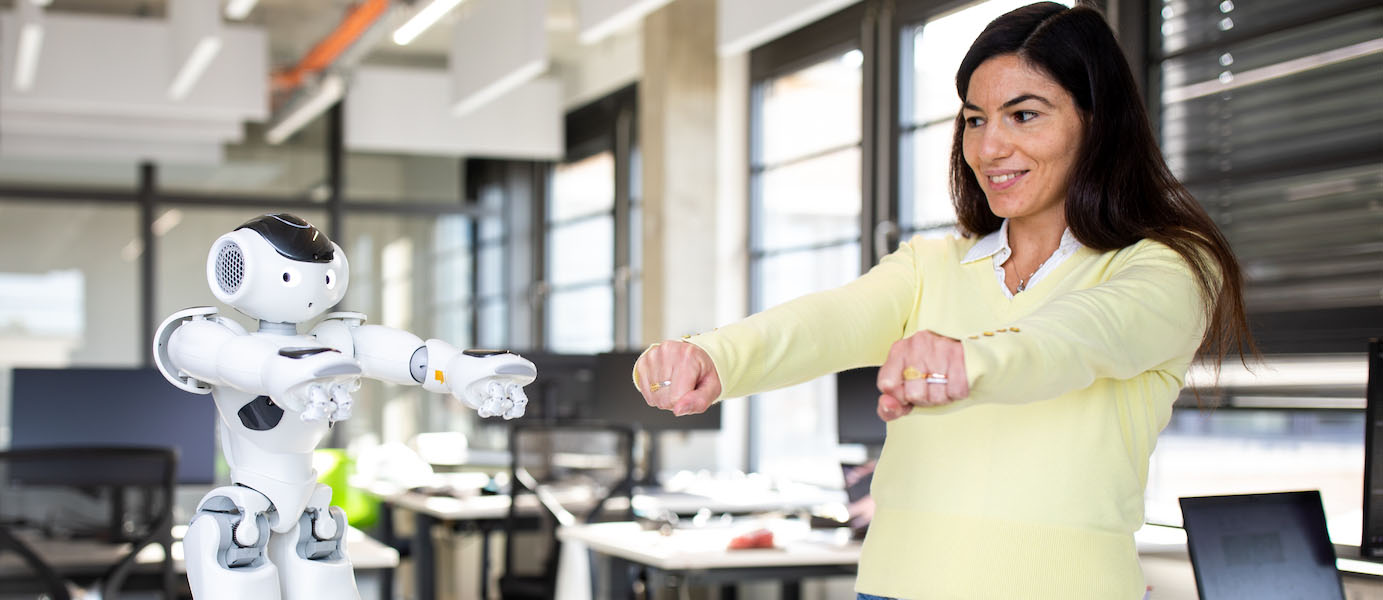
The use of robots in everyday life is spreading and they are being increasingly employed in social life, for example as social companions for the elderly or assistive robots in health care. Although advanced interactive humanoid robots have been developed, their behavior may still appear artificial. What makes people perceive robots as intelligent and human-like?
In this course, we will explore the effect that different social skills of a robot have on humans' attribution of social intelligence to it. Specifically, we aim to answer the following research questions:
1) Which features of a robot's behavior make it appear intelligent to humans?
2) Which social skills could we transfer to a robot to promote social intelligence attribution?
The students will conduct online experiments where the social skills (e.g., ability to take the other’s perspective) of a robot (e.g., Pepper and NAO) are manipulated to assess how this affects people’s judgment of the robot’s social intelligence. Identifying which features improve the perception of robots as socially intelligent will provide insights to guide the development of socially competent robots that can be accepted more easily as interaction partners by humans.
The course takes the format of a research-based learning online class where the students have the opportunity to perform a joint goal-oriented project as a research team. Working in groups, they will perform an experimental study to answer the research questions. The results will be presented in form of an oral presentation and, potentially, as a contribution to a conference.